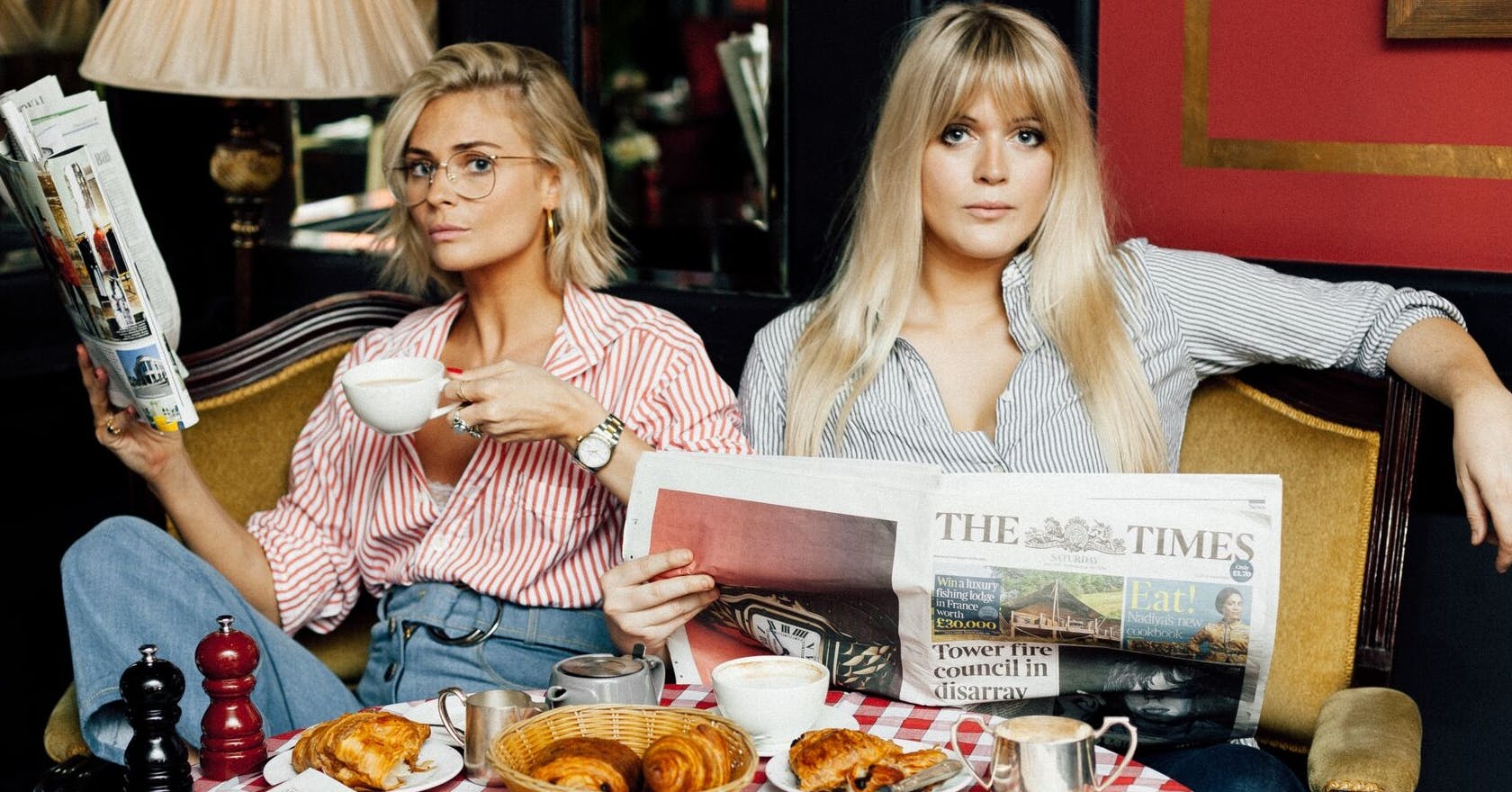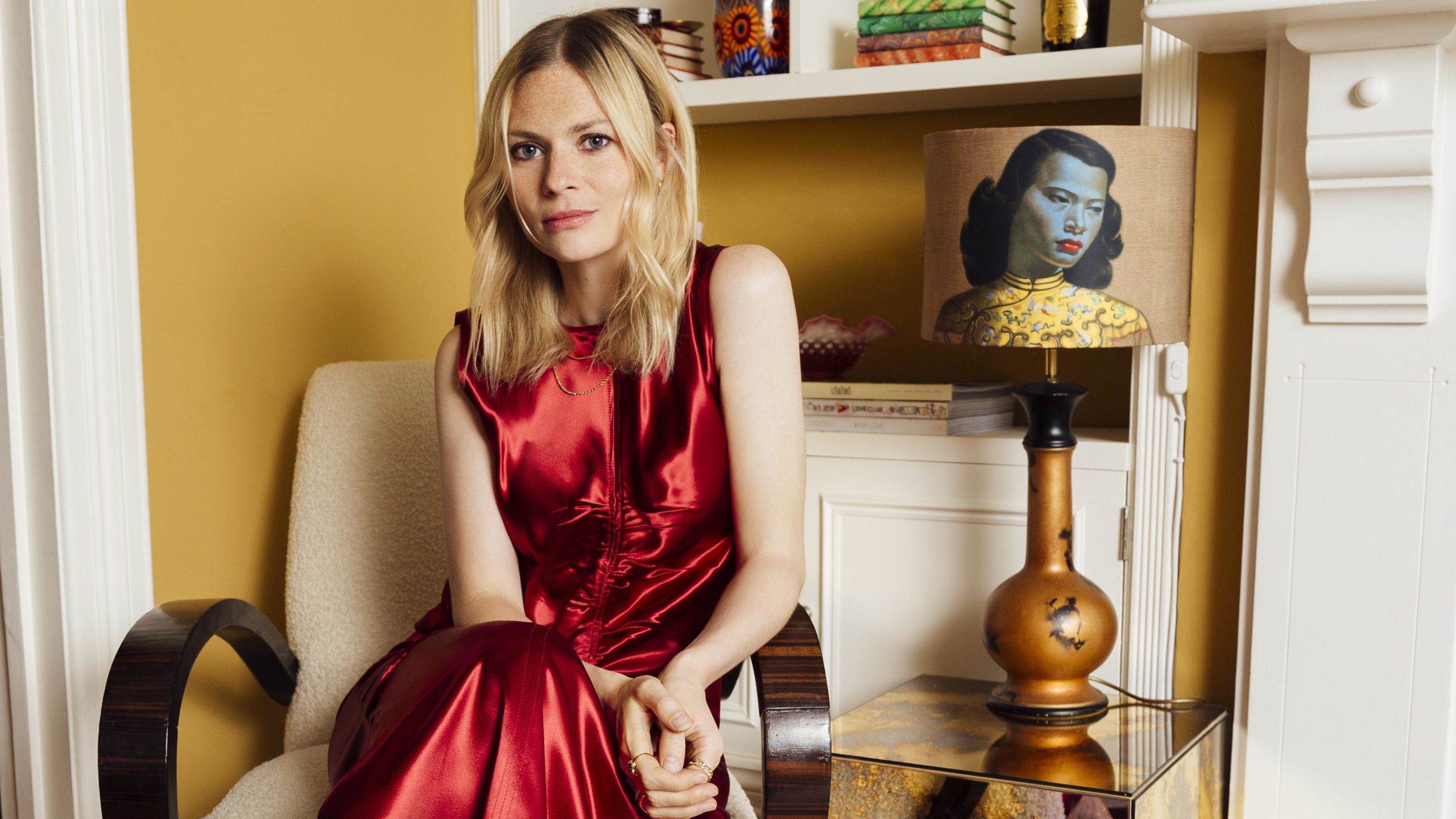Isabel Ralphs interviews Pandora Sykes, discussing gender equality, privilege and what the pandemic has taught us about choice.
How do we know we’re doing it right? In her 2020 book of the same name, this was the question that Pandora Sykes was pondering. Tapping into the millennial/Gen Z appetite for self-reflection, Pandora’s book explores how we navigate various aspects of our 21st century existences – from wellness culture, to internet trolling and burnout -, all the while wondering if we are doing life ‘right’.
To an outside perspective, the multi-hyphenate journalist, podcaster and writer is arguably coming pretty close herself. From humble beginnings writing about ‘smirting’ in the Leeds student newspaper (“Just after the smoking ban came in, without the sort of wadding of cigarette smoke, suddenly all the clubs stunk of farts and Jagerbombs and, even more terrifyingly, you could see everyone. The ban led to specific pockets of flirting in the outside smoking areas, which I called ‘smirting.’”), Pandora is now a widely acclaimed journalist and, until recently, one-half of one of the most successful podcasts of the last few years, as co-host of ‘ The High Low’.

Yet, despite her success, Pandora is not exempt from the anxieties that modern life, with its plethora of possibilities and perpetual social media scrutiny, brings.
Her relationship with the industry in which she started her career forms part of this. Although these days her portfolio spans everything from feminist commentary to missing people investigations, Pandora’s journalistic career started predominantly in fashion. After balancing three internships alongside freelancing and secretarial work to get her foot in the door, Pandora got her first big break at a now defunct fashion-sharing website under the Daily Mail. Following this, she worked her way up the ladder to land numerous coveted roles, including editor of the Sunday Times Style Magazine and contributing editor at Elle.
“Still now…people will dismiss me with the shortcut, that I am “just a fashion journalist” or “an influencer”
Although she has ‘never been ashamed of being a fashion journalist”, she concedes that the industry has its flaws:
“Like everything, it’s a nuanced industry. There are a lot of problems… but there are parts of it I am still really interested in, particularly how an industry that depends on consumerism – 10 hot things to buy now! 5 trends to buy into! – can become sustainable. It’s not going to be easy, but it also has to be done.”
Despite the fact that her start in fashion has in large part been the making of her career, she admits that it has, at times, also held her back. When I ask if she is ever taken less seriously for being a fashion journalist, her response is immediate: “Still now…people will dismiss me with the shortcut, that I am “just a fashion journalist” or “an influencer”, she says.
‘I think it’s important everyone acknowledges their privileges – whether that’s health privilege, social privilege, financial privilege, or all of the above.’
Having her intellectual credibility questioned is not the only time Pandora has faced backlash. Reference is frequently made to the privileged backgrounds of herself and former ‘High Low’ podcast co-host Dolly Alderton. However, when I ask if the constant criticism of her privilege is ever frustrating, she insists that she thinks it is a “necessary conversation” to have:
“I think it’s important everyone acknowledges their privileges – whether that’s health privilege, social privilege, financial privilege, or all of the above. I think it’s as much about what someone does with their privilege, as it is recognising it.”

Debates about privilege aside, there is no doubting that Pandora has worked extremely hard to get to where she is today. In her book, she discusses millennial ‘burnout’ culture at length, as well as the difficulties she has faced in navigating a career where so much of what she produces is personal, acknowledging that “negotiating a public/private work self might never be something I entirely manage, or even want to attain”.
She also addresses the additional cognitive burden experienced by working mothers who often take on the lion’s share of childcare responsibilities, writing ‘I am not the first and I will not be the last woman to agonise over whether you can have a child and work the way you used to. (Newsflash: you can’t!).’
‘I am not the first and I will not be the last woman to agonise over whether you can have a child and work the way you used to.’
As a full-time working mother of two herself, I ask if she thinks the transition to flexible working during the pandemic is good news for women juggling work and childcare, or whether it puts too much pressure on them to be able to do both. Her response leans towards the former, but not for reasons specifically related to women:
“The more male-dominated industries and professions allow for care work – allow them to work from home a few days a week, meaning that they can do nursery drop-offs and pick ups and bath times, which perhaps they couldn’t do when commuting – the less labour a woman has to take on.”
“The statistics of how working mothers have been adversely affected during the pandemic, are hideous…(but) I am optimistic about how this might inform our conversations around work and gender, in the future.”
“how [can] an industry that depends on consumerism … become sustainable. It’s not going to be easy, but it also has to be done.”
Whilst on the subject of the pandemic, I admit that (depressingly) it is quite a strange experience to read a book about modern life that doesn’t once mention the virus (the book was written and released prior to the first lockdown in March). Pandora tells me this is something she is ‘wrangling with’ herself, as she works on a new prologue for the paperback version of the book which is to be released later this year:
“I think the question of choice itself is pretty interesting – have all those choices been taken away? Or, are we realising that a lot of people never had many choices in the first place?”
This is the 21st century conundrum. The pressure we put on ourselves to constantly finesse every aspect of our lives is often attributed to the paradox of choice that modern life affords. Yet even with these choices significantly reduced during a global pandemic, this pressure doesn’t appear to have dissipated. Clearly, this is not something that is going away anytime soon. However, there is definitely some comfort in the knowledge that even the most successful women in the industry sometimes feel as if they are just muddling through a little bit too.
‘How Do We Know We’re Doing it Right?’ is out now in hardback, and in paperback in May.
https://www.waterstones.com/book/how-do-we-know-were-doing-it-right/pandora-sykes/9781786332073
Header image credit: The Times

